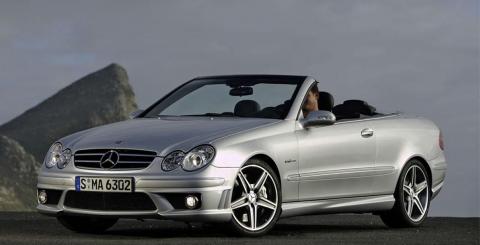At President Joe Biden’s urging, the auto industry pledged to boost production of electric vehicles to the point that they account for about half of total U.S. sales by 2030, a plan that raises hopes that EVs can shift from niche to normal. EVs, including Tesla TSLA, +5.09% , accounted for 2.4% of U.S. cars sold in 2020, up from 0.7% five years ago, according to BloombergNEF. The research provider expects that share to increase to 11% in 2025; by 2030, it expects that slightly over a third of vehicles sold in the U.S. will be electric. See also: From gas savings to tax credits: 7 things to know about Biden’s new electric vehicle and mileage rules Several auto makers had already announced bigger EV ambitions even before the White House call. Here are each major car maker’s stated plans for EVs, including, when available, investment amounts and the range of models they hope to bring to market. This information was collated from company sites, previous reports, and BloombergNEF projections, and will be updated regularly. Audi Audi, a brand known for its luxury cars and owned by Germany’s Volkswagen AG VOW, -1.24% , has promised to have battery-electric vehicles comprise 35% of its sales by 2025. By that time, Audi buyers will choose from about 20 EV models. SOURCE: Audi Audi e-tron BMW BMW AG BMW, +0.32% , a luxury-car maker from Germany, was among the first EV innovators. It launched its i3 compact EV eight years ago, then as one of the few serious competitors to Tesla Inc.’s vehicles. BMW’s EV pipeline has slowed, but the auto maker has promised that 25% of its European sales will be all-electric and hybrid vehicles this year, and that all sales of its Mini brand will be battery electric by 2030. It expects to launch more than 10 battery EVs models in the next couple of years. Daimler/Mercedes-Benz Mercedes-Benz, owned by Daimler AG DAI, -0.43% , expects that between 15% and 25% of its sales will be comprised of EV sales by 2025; by 2030, that percentage is expected to grow to 50%. Mercedes-Benz is slated to end 2021 offering three new electric passenger car models and more to come in 2022. SOURCE: Mercedes Ford Ford Motor Co. F, -0.41% has said that 40% of its global sales by 2030 will be sales of EVs . Ford is aiming to have dozens of electrified models by 2022, the year that will also mark the debut of its much-awaited all-electric F-150 Lightning pickup truck. The Ford F-150 Lightning o jeff kowalsky/Agence France-Presse/Getty Images Ford has called the Lightning the “pillar” of its more than $22 billion bet on EVs, which includes EV models for other best-selling vehicles such as the Mustang and its Transit van. On Sept. 27, the company announced another $11.4 billion investment to build three battery factories and one electric pickup truck plant in the U.S. with a South Korea supplier. Chief Executive Jim Farley on Nov. 18 tweeted he expects the company to make 600,000 EVs a year globally by the end of 2023. SOURCE: Ford GM General Motors Co. GM, -0.52% surprised Wall Street in January by saying it aims to phase out all of its internal combustion engine vehicles by 2035 and only sell zero-emission vehicles by then. The auto maker also promises to be carbon-neutral by 2040. GM has said that it will offer 30 all-electric models globally by mid-decade, and that 40% percent of the company’s U.S. models will be battery electric vehicles by the end of 2025. Its Hummer electric is expected for next year, with production starting this fall. Honda The Japanese maker HMC, -1.39% , which owns the namesake Honda brand and also the luxury-car brand Acura, is projected to derive 40% of its sales from EVs and fuel-cell electric cars by 2030. In April 2020, Honda and GM announced a partnership to develop Honda electric cars using GM’s Ultium batteries. Hyundai The Korean car maker 005380, -2.43% , which also owns Kia, is aiming to have 40% of its Kia and Hyundai brands sales to be of EVs and fuel-cell electric vehicles by 2025. Its Hyundai brand plans on more than 30 electric passenger vehicles by then. Mazda Mazda plans to offer 5% of its vehicles as battery electric by 2030, but EV sales targets as a percentage of total sales are unknown at the moment. Mazda plans to offer its MX-30 all-electric SUV in the U.S. in October, and sells a few EV and hybrid models elsewhere. Nissan Nissan Motor Co. Ltd. 7201, -5.63% was among the first auto makers to offer an all-electric vehicle, and
- Category
- Mercedes 2020
Commenting disabled.







